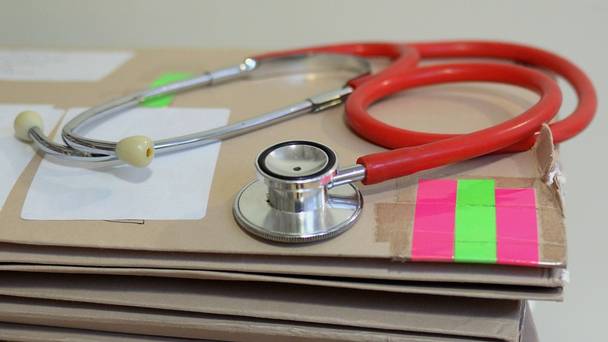-
Tips for becoming a good boxer - November 6, 2020
-
7 expert tips for making your hens night a memorable one - November 6, 2020
-
5 reasons to host your Christmas party on a cruise boat - November 6, 2020
-
What to do when you’re charged with a crime - November 6, 2020
-
Should you get one or multiple dogs? Here’s all you need to know - November 3, 2020
-
A Guide: How to Build Your Very Own Magic Mirror - February 14, 2019
-
Our Top Inspirational Baseball Stars - November 24, 2018
-
Five Tech Tools That Will Help You Turn Your Blog into a Business - November 24, 2018
-
How to Indulge on Vacation without Expanding Your Waist - November 9, 2018
-
5 Strategies for Businesses to Appeal to Today’s Increasingly Mobile-Crazed Customers - November 9, 2018
Techie News: NICE updates guidance to help diagnose cancer earlier
According to the group, thousands of lives are lost each year because tumors are being diagnosed too late and this new strategy could save at least 5,000 lives in England each year.
Advertisement
Doctors will be told to fast-track patients with signs like tiredness or unexplained bruises for urgent tests within 48 hours.
“It therefore makes it a lot easier for GPs to know how to deal with the patient whose symptoms may often be vague and for whom cancer may not be the most obvious diagnosis but who have early and curable disease”.
“The best way to successfully treat cancer is to make an early diagnosis”.
University of Exeter cancer specialist Professor Willie Hamilton, who helped develop it, said: “Britain is lagging behind other countries in cancer survival due to late diagnosis”.
“This updated guideline will help to change that”.
For some cancers, such as cervical disease, women in Slovenia and the Czech Republic are far more likely to be alive five years after diagnosis, Organization for Economic Co-operation and Development data shows. This in turn will mean more people receive an early diagnosis and subsequently, more cancers could be cured.
NICE has taken a new approach by focusing on the symptoms patients may report when seen by a GP or nurse, instead of organizing the guidelines on a cancer by cancer basis. “It reflects real life and we expect it to have a major impact on the success rate for cancer in England”, noted Mark Baker, clinical practice director at NICE.
“The main reason for that is that people tend to present with a cancer at a more advanced stage…this guideline specifically addresses that shortfall”.
A full time GP will have between 6,000-8,000 appointments every year.
Only a small number of cases present in primary care, with a GP diagnosing an average of seven or eight cases a year.
There’s a lot of uncertainty here and it might be better to talk about there being around between 2,500 and 5,000 lives which could be saved, based on the research NICE pointed us to and their assumptions. The sooner the disease is identified, the more likely treatment is to be effective.
“I would be quite anxious if GPs don’t know the basics of common cancers and what to look out for”, he said. Could it be, as one cancer specialist suggested, that the British stiff upper lip is to blame? “By encouraging GPs to investigate potential symptoms of cancer sooner it should lead to more people being diagnosed before their cancer has spread, when it is most treatable”.
It sets out clear tables linking signs and symptoms to possible cancers and includes simple recommendations on which tests to perform and referrals.
Cancer charities, including Macmillan Cancer Support, welcomed the emphasis on early diagnosis but warned there could be “significant challenges” in implementing the guidance because some cancers, such as pancreatic cancer, could be very hard to spot.
Advertisement





























